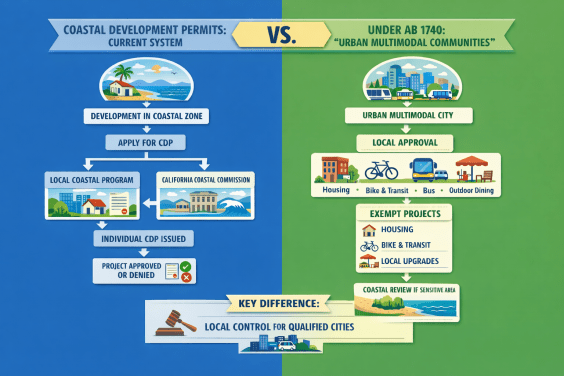Don't do as I say — and definitely don't do as I do!
The federal Department of Transportation says it wants to share its expertise on how to build safer, greener, and more equitable transportation systems — which would be great, if so many of those countries weren't already eating our lunch on all three.
Last Friday, Secretary Pete Buttigieg announced the launch of the new 'Momentum" initiative to help "our international colleagues ... improve the development and operation of transportation systems" by connecting them to the department's expertise and resources. (Those resources so far include a single 28-page PDF, but we're sure more is coming.)
You could call it American Exceptionalism, except, um, advocates were quick to point out that the U.S. is anything but exceptional, ranking lower than the vast majority of our peer nations on many of the most critical metrics of a successful transportation system — particularly when it comes to safety. Though the United States ranks 17th on the United Nations' Human Development Index, it's ranked 72nd for road traffic deaths per capita, worse than two-thirds of the world.
America does a lot better on the stats that highway agencies prefer to cite, like road deaths per 100,000 kilometers traveled, but many experts think that metric is heavily skewed by the fact that the average American drives at least twice as many kilometers per year than residents of other developed countries, besides sprawling outlier Iceland — and it's still solidly among the very worst of all industrialized nations.
I'll add: The USA's transportation CO2 emissions per capita are more than double Europe's (higher than Saudi Arabia, Australia, or Canada).
— David Zipper (@DavidZipper) June 30, 2022
Why, exactly, should other countries listen to us on transportation best practices?
That disparity has never been more clear than in 2020, when U.S. media outlets erupted with headlines about a seemingly paradoxical flood of road deaths as the country fell under quarantine and vehicle miles traveled plummeted — floodwaters which rose even higher in 2021 when the world re-opened and drivers took to the road again.
Experts believe that's in large part because, without rush-hour traffic jams, the motorists who remained on near-empty roads in 2020 simply had more room to speed and otherwise drive recklessly, which stressed-out Americans did in droves. And since those traffic jams never really returned in 2021 (thanks to the rise of remote options among white-collar workers who could simply skip their commutes), roads got even more deadly as the world opened back up, spreading the bloodshed throughout the day.
Of course, the pandemic changed travel patterns and spiked driver stress levels in virtually every country on Earth. In many of America's peer nations, though, COVID-19 precipitated historic traffic violence lows — probably because in those places, good infrastructure and policy was in place to prevent drivers from reaching deadly speeds before the virus, rather than congestion alone.
According to a recent study of 45 countries around the world for which 2020 traffic data was available on the earlier side — a list that includes nearly every country that ranks in the Human Development Index's top 20 — the pandemic slashed car crash deaths in 75 percent of nations, compared to their 2019 totals.
Those included a good chunk of America's peer nations, including France and Germany, both of which experienced their lowest death totals in 60 years or more; the United Kingdom, whose capital reported its lowest fatality count ever; and Denmark, which notably posted a staggering 22-percent death reduction. (Italy was even lower, at 25 percent, but that may have had to do with the country's aggressive lockdowns early in the pandemic.) All of those countries took aggressive steps to build out multimodal infrastructure, fund transit, and curb car dependence long before anyone had ever heard of Covid-19.
America, meanwhile, was one of just 10 countries that experienced an increase in road deaths between 2019 and 2020 (7 percent) ... though all of the other countries on that list deserve a serious asterisk.
Canada, for instance, reported a seemingly staggering 22 percent increase between the two years, but as Bloomberg's CityLab writer David Zipper points out, that still left their residents about two and a half times as safe as the average American road user. Ditto Switzerland, Ireland, and Finland, whose per-capita road death rates are between one-third and one-fifth of the United States' rate.
Iceland reported its own 33-percent spike, but because the whole country has roughly the same population as Cleveland, that was only a difference of two people. (Cleveland, for the record, reported 66 crash deaths in 2020, compared to Iceland's eight.)
Until America takes the kinds of steps to make roadways truly safe as the other countries on this list, US DOT should probably stop putting taxpayer money towards advising other transportation leaders on how to replicate its failures — and start paying attention to the places that are actually making meaningful progress towards Vision Zero.






